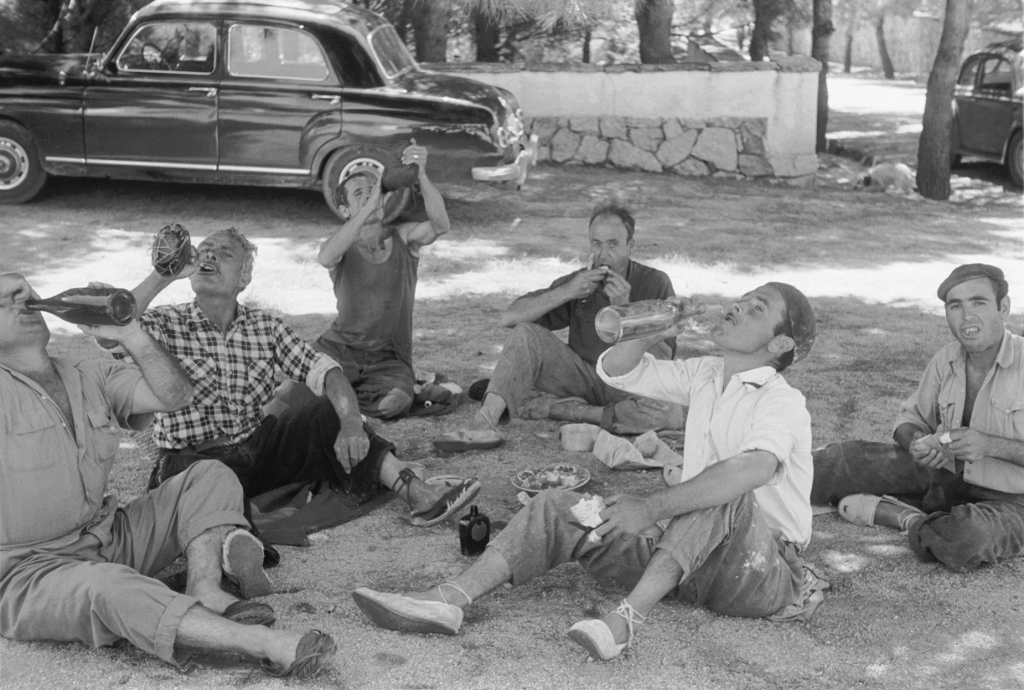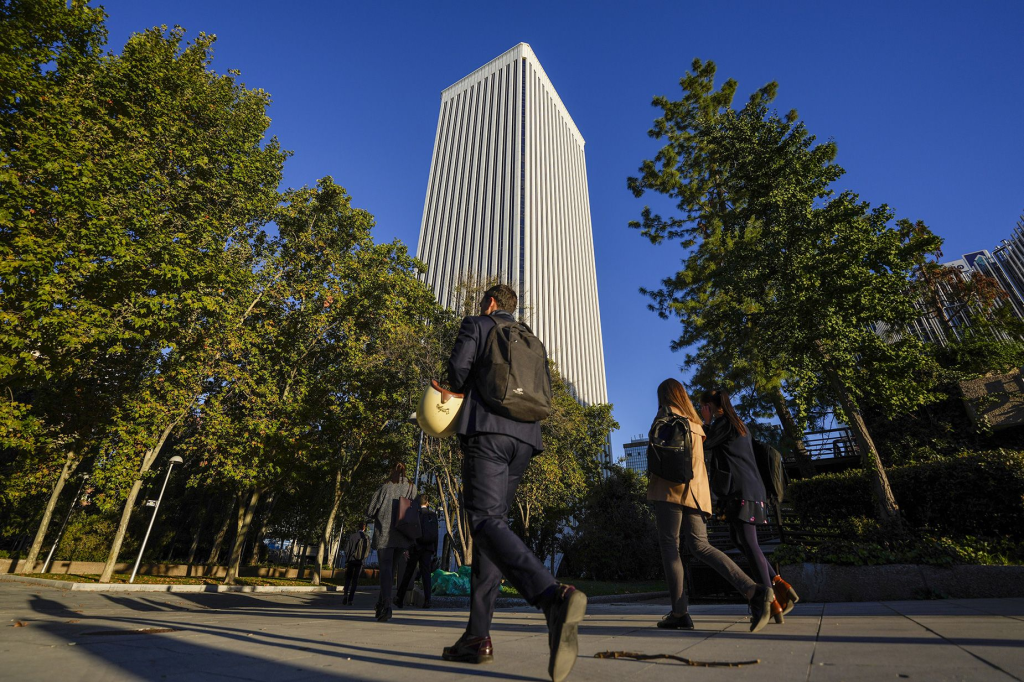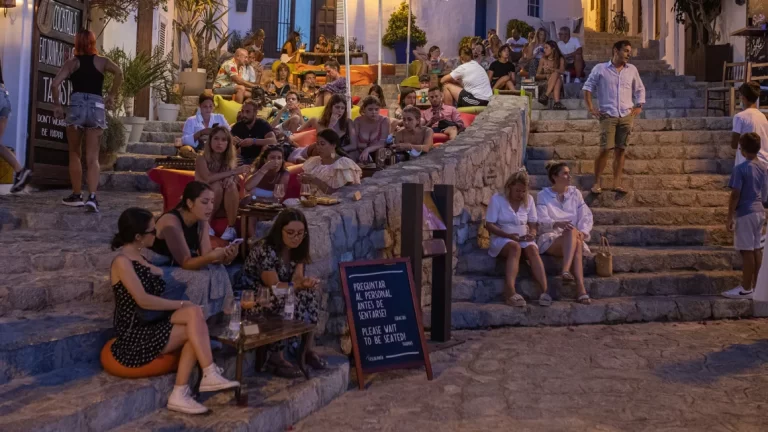The Spanish day is famously long. Lunch doesn’t start until two in the afternoon. Work often ends after seven in the evening and dinner begins at half past eight, at the earliest. To the delight of some tourists keen to experience a different way of living, many restaurants close well after midnight, sending staff home in the early hours of the morning.
So, when Yolanda Diaz, Spain’s second vice president and minister for labor and social economy, denounced the country’s late-night culture as “crazy,” she hit a nerve.
“No reasonable country keeps its restaurants open until one in the morning,” she said during a parliamentary group meeting this month. “It is crazy to keep pretending and extending the hours until we no longer know what time it is.”
“But we are different,” Madrid’s mayor, Isabel Ayuso, shot back on the social media platform X, drawing the debate along political party lines. “They want us all to be puritans, socialists,” she wrote, “Bored and at home.”
Despite the long day, Spaniards work only slightly more than the European average, 37.8 hours a week according to the European Commission. They do, however, get less sleep than most of their Northern European counterparts, 7.13 hours a night according to Public Health Maps.
Spaniards didn’t always stay up so late, says Marta Junqué of the Time Use Institute based in Barcelona, recently consulted by the Spanish government to adjust its laws on working hours.
“Spain is now unique in terms of the late hour that we leave work,” Junqué says. “It hasn’t always been the case. My grandparents worked the same as everyone else. They got up when the sun came out and stopped working when the light had gone. Now, it gets dark at six or seven and we are still working.”
“What we are defending is the right to time,” she adds.
Sleepless siestas
Junqué says the shift in time can be traced to one man: Francisco Franco, Spain’s military dictator who ruled from 1936 to 1975. During World War II, Franco changed Spain’s time zone to align with its German ally. Everything shifted forward by an hour and it hasn’t changed since.
“We should be on the same schedule as Lisbon or London,” says Junqué, “Instead, in the winter we are on Berlin time, and in the summer, we are on par with Istanbul.”
What about Spain’s famously long afternoon break, the siesta?
Derived from the Latin for sexta, the 6th hour after dawn, the siesta was a traditional break for agricultural workers in Spain, as well as Italy, usually taken at around noon, just as the intense heat of the Mediterranean sun begins to peak.

In Spain, however, the siesta became even more prevalent in the Franco era as the failing economy forced people to take multiple jobs, says Junqué.
“People would rise at dawn to work for six to eight hours, take a break for two or three hours to rest, eat, and commute to another job. Then, work several more hours into the evening.”
In Spanish Siesta literally means nap. Today, however, less than 18% of Spaniards regularly sleep during that time, according to a 2016 poll. More than 50% of respondents said they never take a nap. Yet the Siesta, together with Franco’s time-zone shift, has set the circadian clock of Spain’s economy long into the night.
Many shops in Spain close for a two or three-hour afternoon break, lengthening the day for employees and creating what Junqué describes as “time poverty.”
Clock watching
The toll is greatest on Spanish women who take on the majority of household duties and caregiving in addition to employment. According to the Time Use Institute, 30% of Spanish women with families to care for suffer from a complete lack of personal time.
It may also be one reason that Spain’s productivity levels have lagged compared to others in Europe.
“All indicators are that the longer you stay at work, the less productive you are,” says Junquè. “This model of Spain that combines long working hours – time spent at the workplace – as well as ‘presenteeism,’ this culture of needing to be seen at the office, plus lack of autonomy to choose your hours, means lower productivity.”

For years, Spain has been wrestling with how to fix its internal clock. It is an issue that crosses political party lines. In 2016, Spain’s conservative Prime Minister Mariano Rajoy of the Popular Party tried unsuccessfully to pull Spain’s clock back to Greenwich Mean Time.
The current government under Prime Minister Pedro Sanchez of the Socialist Party advocates fewer working hours and more flexibility. It has also mandated pay increases for those who work between 10 p.m. to 6 a.m. in the morning.
That has a big impact on Spain’s service and tourism industry, particularly late-night dining.
On a recent Thursday at Valencia’s popular El Carmen neighborhood at 8:30 p.m., less than a third of the terrazza tables were occupied. Two hours later, however, you’d be lucky to find an empty spot amid the tables of tapas and bottles of rioja and rueda.
Golden moments
In Spain, the dinner crowd doesn’t reach peak capacity until after 10 p.m. says restaurateur, Dani Garcia. That means restaurant owners are bearing the brunt of the costs.
“Sure, you might get German and English tourists hoping for dinner at 6 p.m., but the local crowd isn’t coming in for their tables until 10 p.m.,” he says. Hurrying diners through the meal would be the height of rudeness and very un-Spanish.
“You cannot rush the customer,” Garcia says. “You can’t have them watch as you take out bags of trash. But if they go late, then you’re paying more. Not just for salaries but paying staff to take taxis home at two in the morning.”
Spain has a word for lingering over a good meal: Sobremesa. The literal translation is “over the table” but it describes that golden moment after a good meal with friends and family, savoring a coffee or digestif. It is especially enticing during Spain’s gloriously long summer days.
After midnight in El Carmen, there are still plenty of people filling the terrazzas. Albeit with less food, more bottles of wine, plenty of gregarious laughter, and some spontaneous dancing. Though politicians may tussle over working hours, it seems Spanish diners won’t be changing their late-night habits any time soon.


